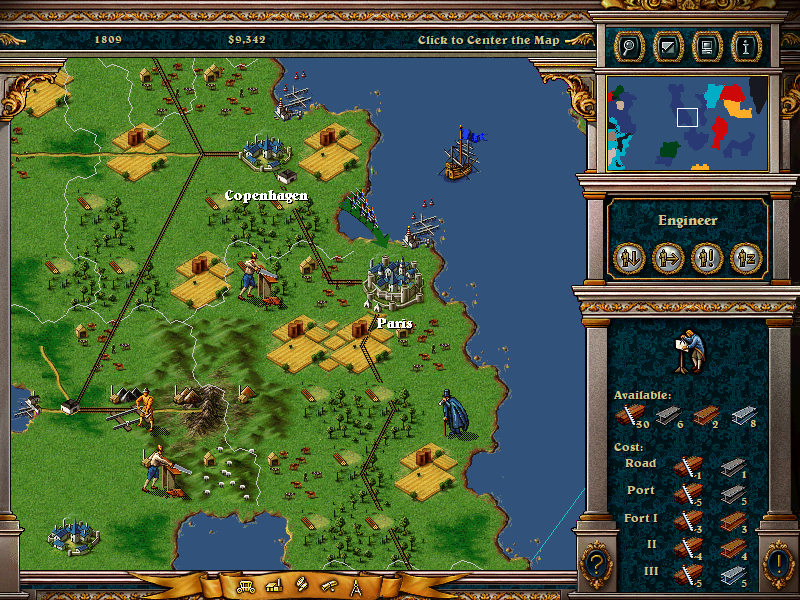While replaying Imperialism II recently, I realised how it illustrates the role of complexity within strategy game design. For every game there is a “right” amount of complexity, and it’s up to the developer how to allocate it.

The key is that simplifying one aspect of the game frees up complexity to be used elsewhere. Imperialism and Imperialism II exemplify this. On one hand, they make city management much simpler than in other 4X games: there is only one to manage, the capital. On the other hand, their resource model is much more detailed. Instead of generic “production”, every unit needs specific resources, such as steel, bronze, and cloth for uniforms. Every one of these has its own inputs, and every input resource (coal, iron, timber, wool, multiple types of food…) is represented on the map. They need to be discovered, exploited, and connected to transport; and then there have to be enough ships to bring the resources back home. Going to war has a real opportunity cost; every ship carrying troops or participating in a blockade is one ship that can’t feed the capital.
This principle can be seen elsewhere. Civilization famously has no tactical battles, because they would interrupt the broader flow of the game. Master of Magic and the Age of Wonders series look very similar at first glance, but playing them back-to-back reveals the extent to which Age of Wonders streamlines city-building in exchange for much more detailed combat.
Even Sid Meier had to watch out for this. As recounted by Soren Johnson, he realised “it’s better to have one good game than two great ones” after falling victim to this when developing Covert Action, a spy game whose management and action layers distracted from one another.
Ultimately, just as the player has to manage finite resources within the game, complexity is a finite resource that the designer must manage outside the game. And as with other types of resource management, the benefits are substantial when done well.
Further reading
Soren Johnson’s elaboration of why “one good game is better than two great ones” — and when mini-games can succeed.
Discover more from Matchsticks for my Eyes
Subscribe to get the latest posts sent to your email.